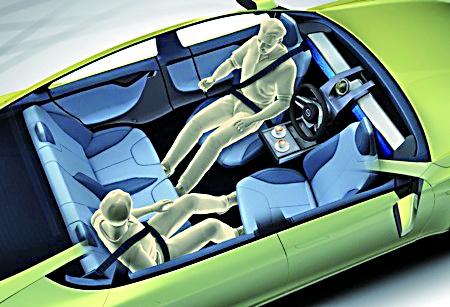The growing popularity of self-driving, so-called autonomous vehicles has increased the need for human-machine interfaces~(HMI) and user interaction~(UI) to enhance passenger trust and comfort. While fallback drivers significantly influence the perceived trustfulness of self-driving vehicles, fallback drivers are an expensive solution that may not even improve vehicle safety in emergency situations. Based on a comprehensive literature review, this work delves into the potential of HMI and UI in enhancing trustfulness and emotion regulation in driverless vehicles. By analyzing the impact of various HMI and UI on passenger emotions, innovative and cost-effective concepts for improving human-vehicle interaction are conceptualized. To enable a trustful, highly comfortable, and safe ride, this work concludes by discussing whether HMI and UI are suitable for calming passengers down in emergencies, leading to smarter mobility for all.
翻译:暂无翻译





